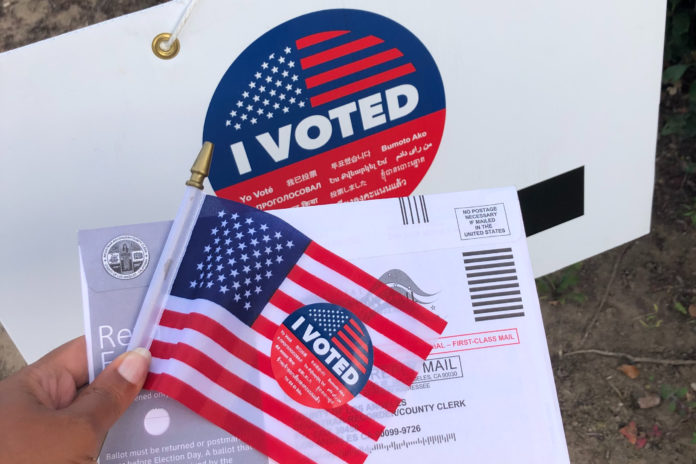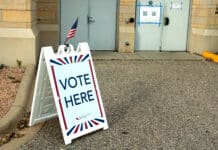Last year, Minnesota Voters Alliance (MVA) and the Republican Party of Minnesota sued several localities including Minneapolis and Duluth, alleging that absentee ballot boards were not following the law because they didn’t have both Republicans and Democrats on the ballot boards.
Minnesota law states that, in the case of absentee ballot boards, “The board must consist of a sufficient number of election judges trained in the handling of absentee ballots and appointed as provided in sections 204B.19 to 204B.22.” 204B.19 has a section which reads the following: “Party balance requirement. No more than half of the election judges in a precinct may be members of the same major political party unless the election board consists of an odd number of election judges, in which case the number of election judges who are members of the same major political party may be one more than half the number of election judges in that precinct.” Another part of the law reads, “Election judges performing the duties in this section must be of different major political parties” (with some exceptions for local elections).
But Minneapolis, Ramsey County, and other Democrat strongholds have been appointing government staff to serve on these boards.
According to MVA, its legal action was against “the City of Minneapolis and various counties for packing absentee ballot boards with hand-picked staff and government union members, while failing to include ANY Republican election judges as the law requires.”
The MVA hinted that this case could alter future election outcomes: “As a result of the elimination of ‘party balance’ oversight, not surprisingly, the statewide absentee ballot rejection rate dropped from 4% in 2008 (with some bipartisan review) to just 1% in 2020 (without bipartisan review). Considering that there were nearly two million absentee votes cast in the 2020 election, many elections were surely impacted.”
The Minnesota Court of Appeals decision
The Minnesota Court of Appeals ruled against MVA and the State GOP’s lawsuit.
First, the localities argued that since the 2020 election already happened, the case is “moot,” meaning it no longer matters. Here, the court ruled in favor of MVA and the GOP, finding that the case should be heard because the “timing of the establishment of the ballot boards — in the summer before an election — will continue to result in appellate decisions not being rendered until after the election has occurred.”
Yet, on the more fundamental issue — whether or not the cities and counties should have been found in violation of Minnesota law by the district court — the Minnesota Court of Appeals ruled against MVA and the GOP. The court admits that, “it is true that section 203B.121 refers to election judges ‘appointed as provided in sections 204B.19 to 204B.22’ and that section 204B.21 requires that major-political-party lists of eligible voters be supplied and then exhausted by cities and counties when appointing persons as election judges.”
But the court then wiggles out of the plain meaning of the law by finding that the section of law that requires party balance doesn’t require the party lists to be used and exhausted, while the section that does require party lists to be used and exhausted doesn’t say anything about absentee ballot boards — instead, the section requiring party lists be exhausted applies to election judges, generally.
MVA also complained that cities and localities are appointing people who are potentially political operatives to ballot boards, or handpicked staff, not “bona fide” deputy county auditors and deputy city clerks. But the court ruled that these appointees don’t have to be deputy county auditors and city clerks outside of the ballot board process, because “the election laws do not define ‘deputy county auditor’ or ‘deputy city clerk.'”
Finally, the court ruled that MVA could not, because of the party balance rule, compel counties and cities to disclose the political affiliation of their ballot board deputies. Here, the court ruled that deputies appointed to ballot boards do not become election judges, so they are not subject to the party balance rule. “Because only election judges are governed by section 204B.21’s requirement to disclose party affiliation or non-affiliation, members of the ballot boards who are deputies are not clearly required to disclose that information,” wrote the judge.
Questions about the court’s decision
MVA and others have questions about the decision, and an appeal is likely. The case brings to attention the need for crystal clear law, and legislators who are gifted enough to accomplish that.
The Court of Appeals position is, fundamentally, that unless the legislature firmly spells out a party balance rule that requires cities to have both Republicans and Democrats on absentee boards, the court will always side with the localities.

















